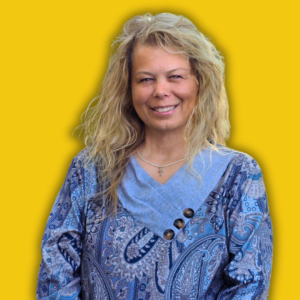 Suzanne Prentice
Suzanne PrenticePrevention Specialist, Up North Prevention
Coordinator and Founder, Live Well Kalkaska Substance Free Coalition
Kalkaska, Michigan
A story in the local paper about a young person losing their life to an overdose deeply moved Suzanne Prentice, igniting her passion for helping families affected by substance use disorder (SUD). One day, overwhelmed with emotion while driving, she tearfully asked for guidance on how she could help other families in need. The answer came in the form of the next song on the radio, “Do Something” by Matthew West. Inspired to act, Suzanne drove to the Third Level Crisis Center and asked how she could help. Through this connection, she was introduced to Catholic Human Services, which provided the support and resources she needed to launch the Kalkaska Coalition. Suzanne’s mission and passion is to help individuals with SUD and their families. She believes in compassion, empathy, and meeting people where they are.
I am the founder and Coordinator of the Live Well Kalkaska Substance Free Coalition and the Prevention Specialist through Catholic Human Services, Up North Prevention. We connect families and individuals to needed education, resources and support.
To help minimize substance misuse, our organization offers free, healthy alternative activities for the community. We partner with the Kalkaska Conservation District to teach families and youth how to enjoy the beautiful natural resources of Northern Michigan through activities like hiking, canoeing, and biking. We also partner with the Lewis School, a local non-profit, to incorporate music and art into our events, encouraging mindfulness and expressing feelings through creative outlets such as drawing and writing. We encourage families, not just youth, to attend these activities to increase family involvement and learn better coping skills. It’s rewarding to see our youth get excited about learning different activities. Watching a student experiencing anxiety relax and enjoy their surroundings proves that nature provides healing.
We work closely with the Kalkaska County Sheriff’s Office to help build healthy relationships between law enforcement and the community. Deputies attend our “Hike and Camp,” allowing participants to interact with law enforcement more personally. The Sheriff’s Office also partners with us to provide “Comeback Sacks” – backpacks filled with personal hygiene products and Naloxone – to individuals with substance use disorders who are being released from incarceration.
We work with the Northern Michigan Opioid Response Consortium (NMORC), a program of the Michigan Center for Rural Health, which regularly attends our monthly coalition meeting and provides valuable support and resources.
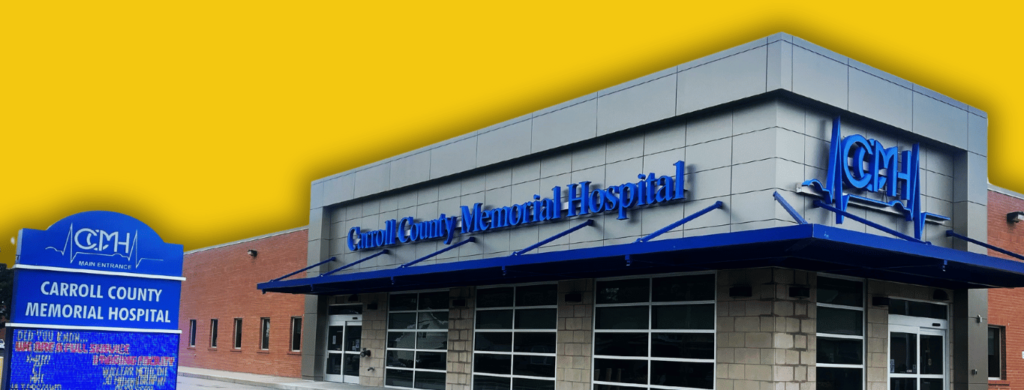 Carroll County Memorial Hospital
Carroll County Memorial Hospital Carroll County Memorial Hospital (CCMH) has served Carroll and nearby counties for nearly 70 years. Built from a hometown dream of bringing healthcare close to home, this Critical Access Hospital has evolved into a leading outpatient diagnostic center, an advanced technology center, and home to numerous physician specialists who provide specialty care. CCMH works with community leaders, including the Carroll County Community Development Corporation, the Kentucky Transportation Cabinet, and the University of Louisville Health, to provide innovative and compassionate care as they continue to be the vital cornerstone of their community.
Two years ago, CCMH recognized a significant challenge within our community: the decline of small hometown pharmacies and difficulties with large retail pharmacies. In response, an outpatient retail pharmacy was opened. It now fills up to 1,400 prescriptions per month, and due to its success, we are adding a drive-thru window and extending hours. What began as a service for our hospital and clinic patients has evolved into a broader community pharmacy, meeting the needs of the entire local population.
Witnessing the transformative impact of our Empowered Living program has been incredibly rewarding. It is fulfilling to see individuals who were once isolated and struggling with behavioral health challenges regain their confidence and sense of purpose. A particularly memorable accomplishment was expanding our wellness transportation service, which started as a small pilot program but grew as we saw the profound difference it made—enabling patients to consistently attend therapy sessions, medical appointments, and community activities. It’s now an integral part of our program.
The “Power of Rural” represents the strength, resilience, and deep sense of community that defines rural areas. It is evident in how people rally to help neighbors, the resourcefulness they show when solutions aren’t readily available, and the commitment to preserving a way of life that values connection, hard work, and a deep respect for the land and each other. It’s this collective spirit that makes rural communities not just survive but thrive, and it’s a powerful force that deserves recognition and support.
Our strong relationship with the State Office of Rural Health is crucial in our ongoing efforts to strengthen healthcare in our rural community. We regularly collaborate with them, attend their training opportunities, and benefit from their support through the Small Hospital Improvement Program (SHIP) grants. We also work with them to advocate for policy changes, often traveling to Washington, DC, to lobby and meet with our state legislative representatives, ensuring the needs and challenges of rural healthcare are heard.
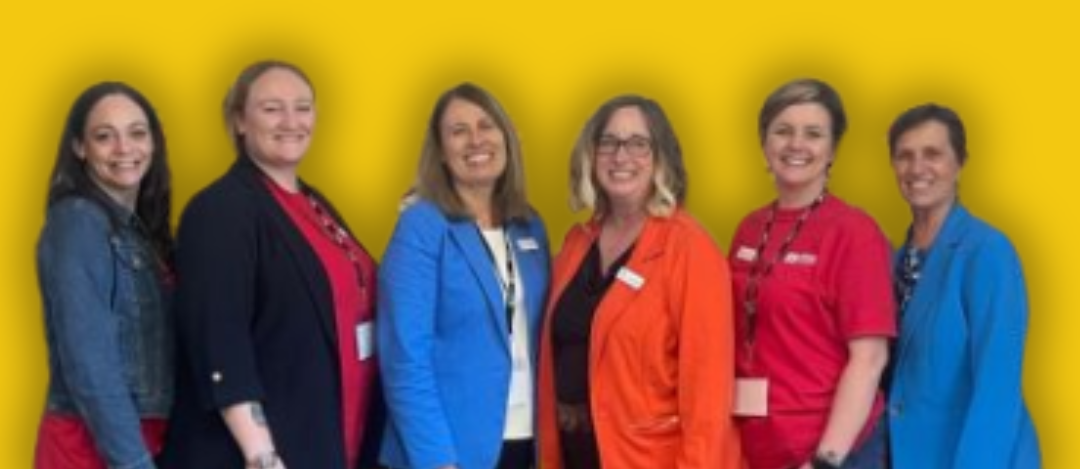 Arkansas Behavioral Health Integration Network
Arkansas Behavioral Health Integration Network The Arkansas Behavioral Health Integration Network (ABHIN) has made remarkable progress in integrating behavioral health into the healthcare continuum in rural Arkansas communities. A standout initiative is the A-Route project, which has significantly increased access to Naloxone in these areas. Additionally, their “While You Wait” podcast, accredited for one free CEU per episode, brings healthcare professionals together to share insights and cover important topics like stigma reduction and maternal mental health. Their extraordinary efforts have not only saved lives but also enriched the well-being of rural Arkansans.
We have been honored to receive three Rural Communities Opioid Response Program grants that have allowed us to build a consortium that is truly making a difference across ten counties in North Arkansas. ABHIN is bringing Behavioral Health Integration (BHI) into rural areas across Arkansas, offering a perfect solution for areas with extremely limited mental and behavioral health resources. BHI places Behavioral Health Specialists in rural primary care settings to support patients with mental and behavioral health needs. Providing this support to rural primary care providers is critical.
We had the opportunity to develop a strategic plan for a suicide postvention network in North Arkansas. While most efforts focus on PREvention, we recognize that POSTvention care is also suicide prevention. We worked with organizations across all sectors – first responders, coroners, behavioral health providers, faith groups, and more – to develop a plan that will allow rural communities to provide timely, comprehensive support to people who have lost someone to suicide. This innovative approach can serve as a model for other rural areas.
We engaged several partners to host the first annual Re-Entry fair in Harrison this year. We engaged social service providers, treatment providers, legal support, and others to provide a one-stop shop that can help people who are re-entering society after incarceration or addiction treatment.
While we may lack many resources, rural communities have powerful and unique resources that can’t be found elsewhere. A shared sense of community history, the ability to come together and support each other when times are hard, close community connections and collaboration, and the innovation required to overcome challenges are some of the strengths that build the power of rural communities.
Our State Office of Rural Health has been instrumental in helping us recruit healthcare providers for several key projects. They provide subject matter expertise that has helped us build responsive programs and have also connected us with potential collaborators. We are thankful for their work and for this meaningful partnership.
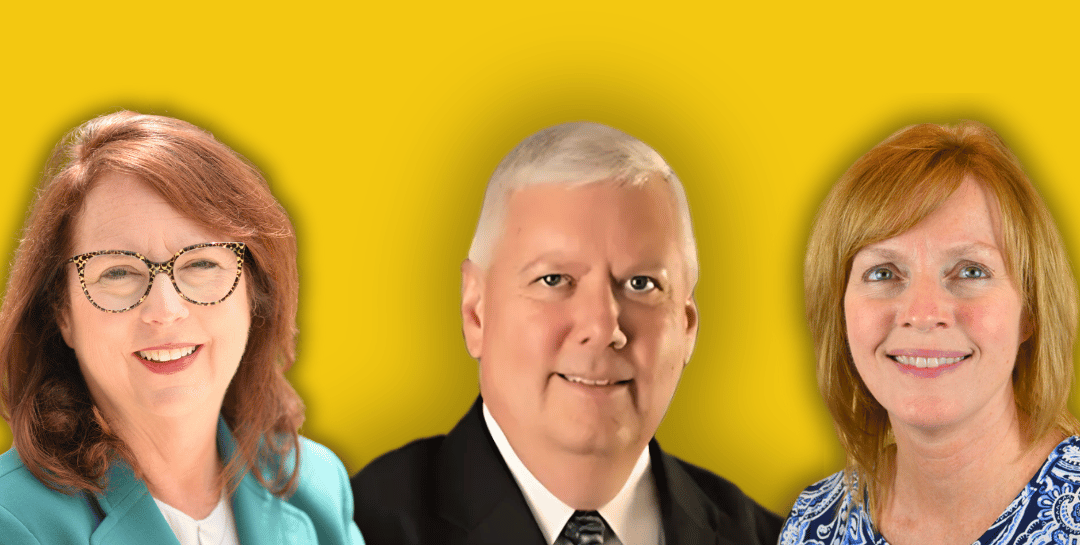 Indiana University Health (Bedford, IN)
Indiana University Health (Bedford, IN)
With its predominantly rural population, Lawrence County, Indiana, has long faced significant challenges in healthcare access and social determinants of health. In 2022, the local healthcare system announced the closure of its Critical Access Hospital in Bedford, posing a serious threat to the community. This closure left only one critical care facility, limited access to essential services like labor and delivery, and raised concerns about the continuity of care for local residents.
In response, three healthcare organizations—Indiana Health Center, Southern Indiana Community Health Care, and IU Health Bedford—came together to address the crisis head-on. Through a coordinated and strategic partnership, these organizations developed a plan to ensure healthcare access for all Lawrence County residents. This collaboration has been widely recognized for its impact, showcasing the power of working together to put patient care above competition and to address healthcare disparities in rural communities.
This partnership stands as a model of how healthcare providers can unite to safeguard essential services, ensuring that rural communities retain access to critical care during challenging times.
The “Power of Rural” reminds us that healthy communities, regardless of location or population density, empower everyone.
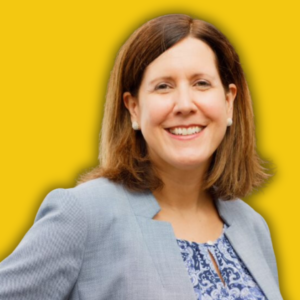 Sara Rich, MPA
Sara Rich, MPA President and Chief Executive Officer
Choptank Community Health System, Inc
Denton, Maryland
Sara Rich has a distinguished record of accomplishment and dedication to community health. Under her leadership, Choptank Community Health System (CCHS), a Federally Qualified Health Center (FQHC) located on Maryland’s Eastern Shore, has significantly expanded its reach. She has achieved notable improvements in patient experience and employee engagement. Her leadership is also evident through active participation in regional health initiatives and advocacy at the state and national levels on behalf of the nation’s community health centers.
I have over 25 years of experience in local, state and national healthcare settings, specifically in roles to improve the health and well-being of children, families and communities. I always wanted a career in which I could make a difference in the lives of others. In rural health, the relationships we have in our communities, with our colleagues and with those we serve inspire us all to make that difference every day.
My most rewarding experiences are our amazing partnerships with non-profits, businesses, school systems, health departments and others. Seeing the impact that can be made when organizations come together, such as during the pandemic, makes this work rewarding. At CCHS, adding and expanding behavioral health services was a moment that I was very proud of – this was and continues to be a huge need for our patients and community.
We recognized that some communities were still unable to access health care at our existing locations easily. CCHS, which has a long history of providing medical services through a robust school-based health program, partnered with the local schools to open our school health centers to the entire community, providing care to all residents and increasing access in these underserved areas. Additionally, we have three mobile health units that provide care at schools, homeless shelters, and other community locations, allowing us to reach people where they are and connect them with vital health services.
To me, the “Power of Rural” is working together with partners to provide access to care for all – finding a way and figuring it out.
The State Office of Rural Health is a wealth of resources that assist us in partnerships, workforce recruitment and retention, and provider loan repayment. Their work enhances the rural healthcare delivery system, and we rely on them to advocate for rural health needs at the state and federal levels.
 Joyce Grayson
Joyce Grayson Director
Rural Health Education and Services, University of Kansas Medical Center
Wichita, Kansas
Strengthening the workforce and cultivating a positive workplace culture in rural Kansas is Joyce Grayson’s professional passion. For the past 20 years, she has been dedicated to enhancing the quality and quantity of healthcare professionals in rural Kansas through her leadership in the KU Medical Center’s Rural Health Education and Services (RHES) programs. Joyce has built strong relationships and led numerous initiatives in collaboration with state partners, healthcare organizations, providers, and students. She has proudly represented Kansas on regional and national stages and has shared her expertise as a consultant to other states seeking to implement similar workforce programs. Her wonderful smile, unwavering dedication and love for Kansans have made a lasting impact on all who have had the joy of meeting her.
As the director of RHES, I helped establish the Kansas Recruitment and Retention Center (KRRC) in collaboration with the Kansas Office of Primary Care and Rural Health. KRRC is a statewide program that provides recruitment, retention, career, and education services. RHES also houses programs such as the Kansas Bridging Plan (a loan forgiveness program), the Kansas Locum Tenens program, and Leadership & Development Training, all designed to meet the needs of our workforce and rural communities. Collectively, we have placed over 680 healthcare providers in rural and underserved areas of Kansas, significantly improving access to care and generating over $5 billion in economic impact for these communities. These placements contribute to our rural communities thriving!
Early in my career, a woman thanked me for helping her community find a new family physician. She shared her concerns and fears during the time they were short a physician. Then, in comparison, she shared her comfort and confidence with having the new physician in the community – having access to care for her and her family impacted their quality of life. That conversation has stuck with me for 20 years because it personalized why the work is important.
Our long-standing partnership with the Kansas Office of Primary Care and Rural Health has been key to our success. They are a trusted and highly valued partner! Together, we promote state and federal workforce programs, increase pipeline activities, create survey tools and reports, and provide technical assistance to rural hospitals and clinics. For example, we conducted employee engagement and satisfaction surveys for rural hospitals and clinics. The feedback revealed a need for on-site education related to organizational culture, employee engagement, and workforce retention. As a result, our Leadership & Development Training Services was developed! This program is tailored to meet the specific needs of each organization, ensuring relevant and effective training.
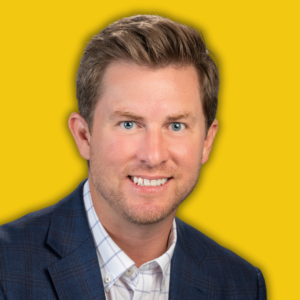 Joseph Marchant
Joseph Marchant President/CEO
Bibb Medical Center
Centreville, Alabama
As the President and CEO of Bibb County Health Care Authority, a not-for-profit community hospital based in Centreville, Alabama, Joseph Marchant dedicates his time to providing outstanding healthcare to Bibb County residents while advocating for equitable healthcare access across Alabama’s rural communities. Under his leadership, Bibb Medical Center (BMC) reopened its Labor and Delivery Unit after a closure of over 16 years, becoming one of the few rural hospitals in Alabama to offer these services. Joseph also recognized the need for senior living in the region and successfully opened a new Senior Living Facility, achieving 100% occupancy. Additionally, he initiated a farmer’s market on the hospital campus, providing fresh, local food to the community, particularly benefiting residents of the Senior Retirement cottages. Whether coaching softball or leading one of the state’s most successful rural healthcare systems, Joseph is committed to enhancing the quality of life in Bibb County.
In a rural West Alabama community devoid of a YMCA or a Boys and Girls Club, we needed to bring opportunities to children in the community and provide a facility that encourages health and wellness for adults and seniors. In 2022, the BMC Wellness Center, a 28,000 sq. ft. fitness and recreational facility, opened its doors and has made a significant impact in the community. From senior citizens regaining their mobility in water aerobics to the new recreational programs introduced to local youth, the Wellness Center has enhanced the quality of life for all generations in the community.
In rural Alabama, accessing healthcare can be challenging for many residents. Although healthcare services are available, transportation often poses a significant barrier, especially for the elderly population. We envisioned eliminating these transportation barriers by providing primary care directly in patients’ homes. BMC at Home was established and now offers primary care services to 300 patients within a 30-mile radius.
There is a significant and ongoing need for healthcare workers across the state, specifically nurses. In 2022, Bibb Medical Center partnered with Shelton State Community College to offer convenient educational opportunities for rural students interested in pursuing a nursing career. This pathway helps eliminate both travel and financial barriers. Since its inception, two cohorts of students have graduated and entered the workforce throughout West Alabama.
I believe everyone wants to make a meaningful impact in what they do. Often, there is more opportunity in rural areas to become an integral part of the community.
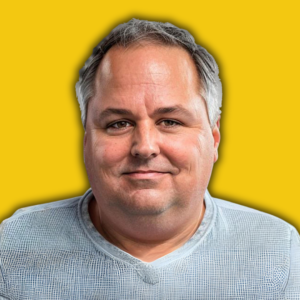 Darin Thomas
Darin Thomas Strategic Project Director
Prisma Health Addiction Medicine Center
Greenville, South Carolina
Darin Thomas, a licensed social worker, has made significant contributions to improving rural behavioral health in South Carolina. His compassion, patience, and genuine care for others distinguish him as a standout in his field. Darin has played a pivotal role in developing statewide behavioral health initiatives and addressing critical gaps in rural care. He also serves as a leader in stigma reduction and behavioral health education, chairing the board for Mental Health America in Greenville County and serving on the board for the SC Community Health Worker Association. Darin’s leadership and dedication have profoundly impacted individuals and communities across the state.
At Prisma Health Addiction Medicine Center, I lead initiatives that support individuals with substance use disorders (SUD) in rural communities. One of my early projects involved establishing a coalition in Oconee County to address opioid-related deaths, reduce stigma, and foster partnerships. I also managed a grant that helped individuals in recovery secure employment, advance in their careers, or pursue education. These experiences led to a strong collaboration with the South Carolina Office of Rural Health (SCORH), which expanded into a broader stigma reduction initiative across multiple rural counties. Through this partnership and with funding from the Rural Communities Opioid Response Program (RCORP), we deliver the University of Rochester Medicine Recovery Center of Excellence’s Community Conversations, a Behavioral Health Simulation, and mobile clinics for Medication for Opioid Use Disorder (MOUD). I believe rural communities are the true experts on their own challenges, and my role is that of a facilitator.
During site visits with our Mobile Clinic for MOUD, I’ve witnessed the remarkable progress that community members seeking treatment can achieve when provided with healthier opportunities. One memorable moment was when a member shared that he had been invited to his parents’ home for Thanksgiving, where he could reconnect with his children after years apart. These milestones are not just significant for the individuals; they also represent meaningful progress for the community.
I proactively engage with local coalitions, key community stakeholders, and individuals in recovery. In response to concerns about transportation challenges, we decided to position our mobile clinics in relatively high-traffic rural areas and operate on a walk-up basis. This model has also proven to be an effective community recruitment tool, as established members often bring new individuals for assessment and treatment.
Our partnership with SCORH is invaluable, particularly when seeking to enhance health outcomes in these communities. They stand as the leader and subject matter expert in engaging rural communities, having established a significant level of trust with rural stakeholders. This trust has been extended to our work as a health system, facilitating our integration into the rural communities we serve.
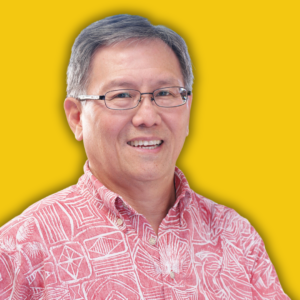 Lance Segawa, FACHE, MPH, NHA
Lance Segawa, FACHE, MPH, NHAChief Executive Officer
Hawaii Health Systems Corporation – Kauai Region
Waimea, Hawaii
Lance Segawa is a Community Star for his extensive work with Hawaii’s Critical Access Hospitals (CAH) and his leadership as CEO of the Hawaii Health Systems Corporation – Kauai Region. In his role, he has expanded services to the community, improved hospital operations, and fostered sustainable leadership. Additionally, Lance provides education on leadership and culture change to other CAHs, earning widespread respect from his staff and peers throughout the CAH network.
I oversee two critical access hospitals, a network of six clinics, and an urgent care facility. One of our hospitals houses the county’s only inpatient behavioral health unit. As a safety net hospital, we serve the most vulnerable populations, provide long-term care services, and recently started a “street medicine” program to deliver primary care to people experiencing homelessness.
My most memorable experience was opening a new 100-bed hospital in a community that previously had no hospital. Building an organization with staff from the local community and witnessing the organization’s spirit was very special.
We converted one of our clinics into an urgent care center to meet the community’s growing demand for urgent care services. With only two urgent care clinics on the island, the wait times were becoming excessive. Within six months of the conversion, we averaged over 45 patient visits per day, with wait times significantly reduced. Most importantly, patient satisfaction has been overwhelmingly positive.
Access to subspecialty care is often challenging in rural areas. In our community, radiologists are a rare commodity. By partnering with another hospital system, we created a group of radiologists servicing the three hospitals in the community. This collaboration has proved to be a cost-effective approach and has also improved the quality of film interpretations overall.
I strongly believe that rural communities deserve comprehensive, premier healthcare services that minimize the need to transfer to larger urban facilities unless clinically necessary. I wanted to be a part of creating a hospital system with this objective.
We have a strong relationship with the State Office of Rural Health. They play an integral role in our development as a high-performing organization by sharing opportunities and providing access to national resources/consultants.